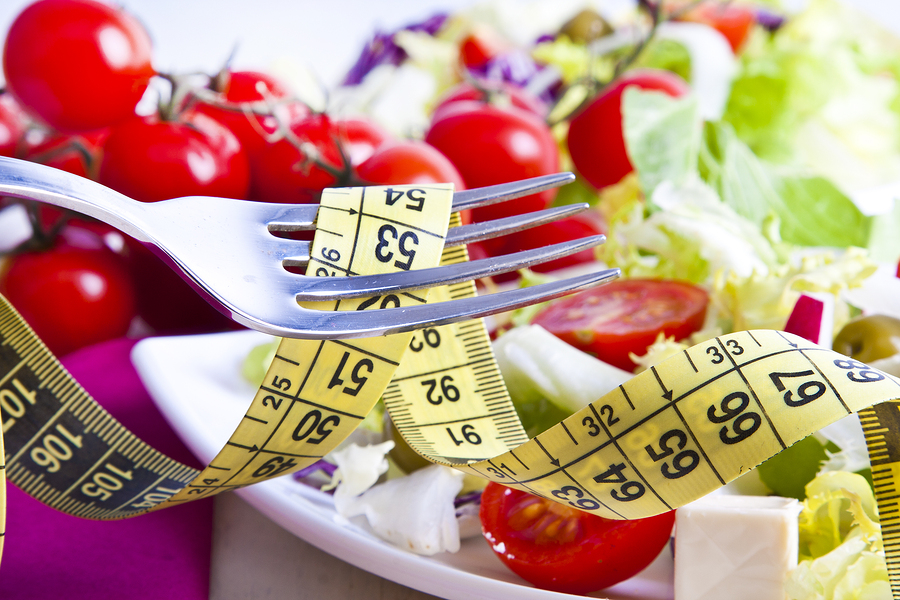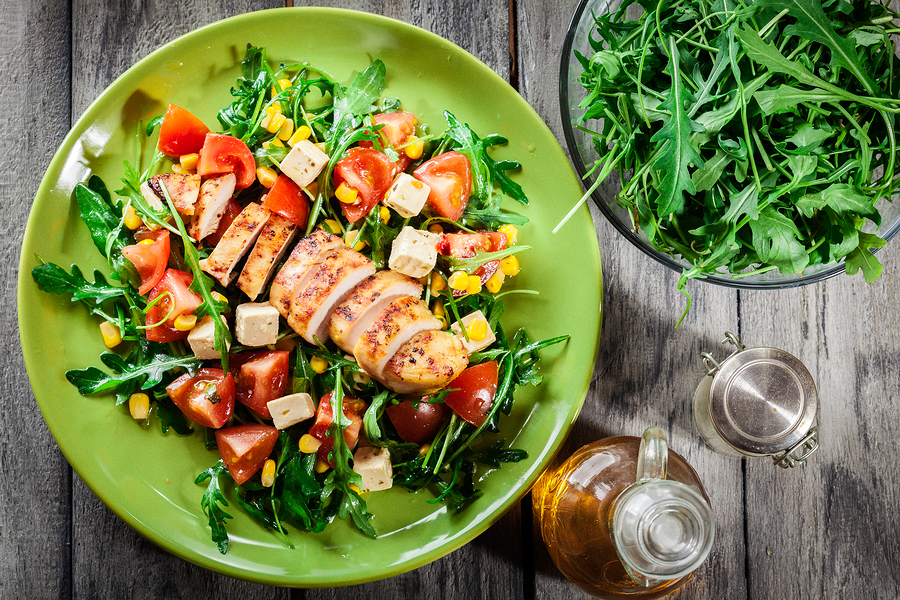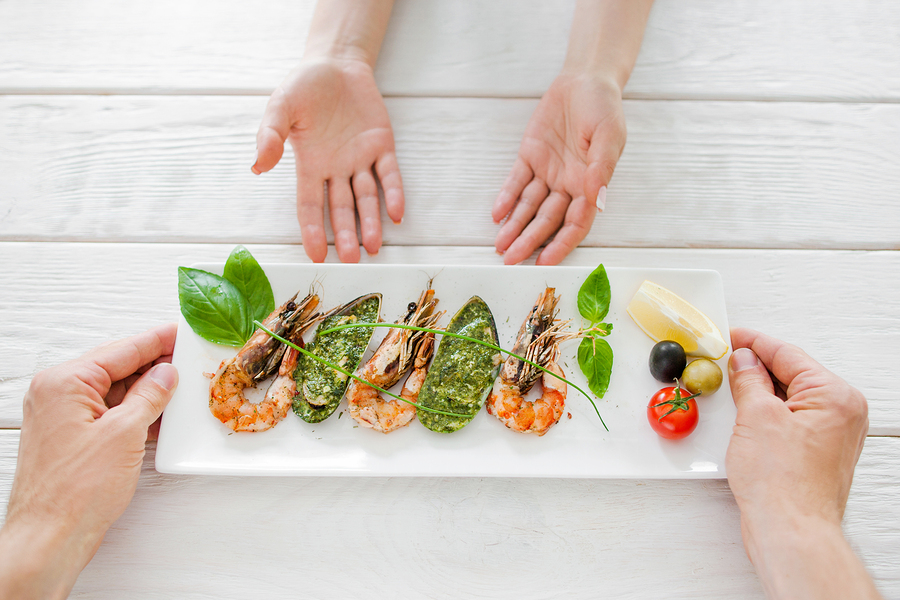- Make It Yourself Lavender Heart-Shaped Bath Bombs!
- 20 Things You Never Knew About “Down There”
- 12 Best Foods For Those Suffering From Arthritis Pain
- 12 Personal Hygiene Mistakes Almost Everyone Makes (Mom Never Told You About #4!)
- 15 Medicinal Plants And Herbs From The Cherokee People
- 12 Mind-Blowing Benefits Of Drinking Coconut Water During Pregnancy
- 12 Outstanding Winter Foods That Won’t Fatten You Up Like A Christmas Turkey
What Sets The Mediterranean Diet Apart From The Rest?

Photo credit: bigstock.com
At the beginning of every year, when just about everyone is ready to embark on a new diet in order to lose those unwanted pounds once and for all, the authorities list the top 10 diets to follow. Most of the top 10 diets consist of popular franchises, or at the very least diet books that have made it to the best-seller list on Amazon.
But one entry that shows up in the top 3 every year is the lesser-known Mediterranean Diet. How is it so popular when most people know so little about it? One of the reasons it is less familiar amongst the perennial dieter is that it’s not so much of a weight loss plan as it is a healthy way of eating for life.
How Does the Mediterranean Diet Differ from Other Weight Loss Plans?
1. There are fewer restrictions
Most eating programs that focus primarily on losing weight seem to have some type of restriction such as a specific number of calories, a set amount of carbohydrates, or little to no fats. The Mediterranean Diet has a specific focus but it is much more relaxed in what you can and cannot eat.
2. The Focus is more on health than on weight loss
While there is no disputing that for many people even a small weight loss will result in a healthier body, the Mediterranean Diet produces health benefits whether you are following it to lose weight or not. Most physicians recommend this eating plan to their patients for the following reasons:
- It’s heart healthy.
- It has been recognized for lowering blood pressure.
- The plant-based program is rich in anti-inflammatory foods which results in a lower rate of cancer.
- Provides a safe way to maintain stable and reduced blood sugar levels for those with type 2 diabetes.
- Has been proven to reduce the risks of Alzheimer’s, dementia, and Parkinson’s disease.
- Coupled with an exercise program it does provide an opportunity for weight loss without a high level of deprivation.
Continue to Page 2

Photo credit: bigstock.com
3. Even though the health benefits are important, you can still lose weight on this plan
When you follow the Mediterranean Diet along with 30 minutes of exercise each day, you can not only lose weight but keep it off for good. Whenever a diet plan eliminates a food group, the dieter feels deprived and sooner or later returns to their former bad habits. Those who follow this diet feel so good, have more energy, and are still able to enjoy their favorite foods along with a glass of wine. So they do not feel like they are missing out on anything.
4. It is not a fad diet
Most trendy diets start out as a top-selling book that the weight loss community embraces with a zealousness that results in extraordinary success stories. The Mediterranean Diet has been fashioned after the way residents in Spain, Greece, Italy, and other Mediterranean areas eat on a regular basis and have for years.
5. You can have bread, fats, and even wine on this food plan
While eliminating junk food and processed products is a big requirement, you are allowed to have whole wheat bread and pasta, olive oil as the fat of choice, and one or two glasses of wine each night is allowed. Honey is used in place of sugar and sugar substitutes. Fruit is the primary form of dessert.
Continue to Page 3

Photo credit: bigstock.com
Dos and Don’ts of the Mediterranean Diet?
What you CAN eat on the Mediterranean Diet
- Seafood – at least twice a week or more: salmon, tuna, mackerel, trout, and herring. Stay away from fried fish and enjoy your seafood grilled instead.
- Chicken and turkey are allowed.
- Beans, lentils, and other legumes. Two to four cups per week are suggested to ensure the health of your heart.
- Bread and pasta that are made of whole grains are allowed. You can have whole grain pasta twice a week.
- Fresh fruit is encouraged – from 3 to 4 pieces each day. Many people use a piece of fruit as their dessert.
- Plan on focusing on vegetables that are in season. Salads are always a great choice dressed with olive oil and vinegar.
- Some dairy products are on the menu including low-fat milk, yogurt, and cheese.
- You can have fats but instead of butter or margarine reach for olive oil instead. It is a healthier choice and along with high fiber foods helps you to stay full.
- Nuts can be used in cooking or make a great snack. Walnuts are great for your heart and almonds are an excellent source of protein.
- Water, coffee, and tea are the beverages of choice. One or two glasses of red wine can be enjoyed each day.
What is NOT allowed on the Mediterranean Diet
- Red meat. You can have lean red meat on occasion but the focus is on fish and poultry.
- Processed or junk foods are not allowed at all.
- Sugar is not allowed and is replaced by more natural alternatives such as honey.
- Season your food as you cook and do not add extra salt at the table.
- Ice cream, cookies, cakes, pies, or any other sweet treats.
- Butter or other forms of saturated fat.
Continue to Page 4

Photo credit: bigstock.com
Sample Meals While on the Mediterranean Diet
Breakfast: 1/2 cup of strawberries, two hard boiled eggs, whole grain toast spread with almond butter, coffee or tea.
Lunch: Large chef salad made with lettuce, tomatoes, cucumbers, olives and sliced turkey dressed with olive oil, balsamic vinegar, salt, pepper, and fresh herbs.
Dinner: Whole wheat pasta with mushrooms sautéed in olive oil and oregano topped with homemade tomato sauce. Whole grain garlic bread made with olive oil and Italian herbs. Seasonal fresh fruit dipped in low-fat yogurt for dessert.
Snack: Almonds, walnuts or roasted garbanzo beans.
READ ALSO: Can The Ketogenic Diet Help Beat Cancer?
If you are looking for a simple food plan to follow that you can actually stay on for the rest of your life, the Mediterranean Diet may fit the bill. Check out the Internet for plenty of free food plans and recipes.
References:
































